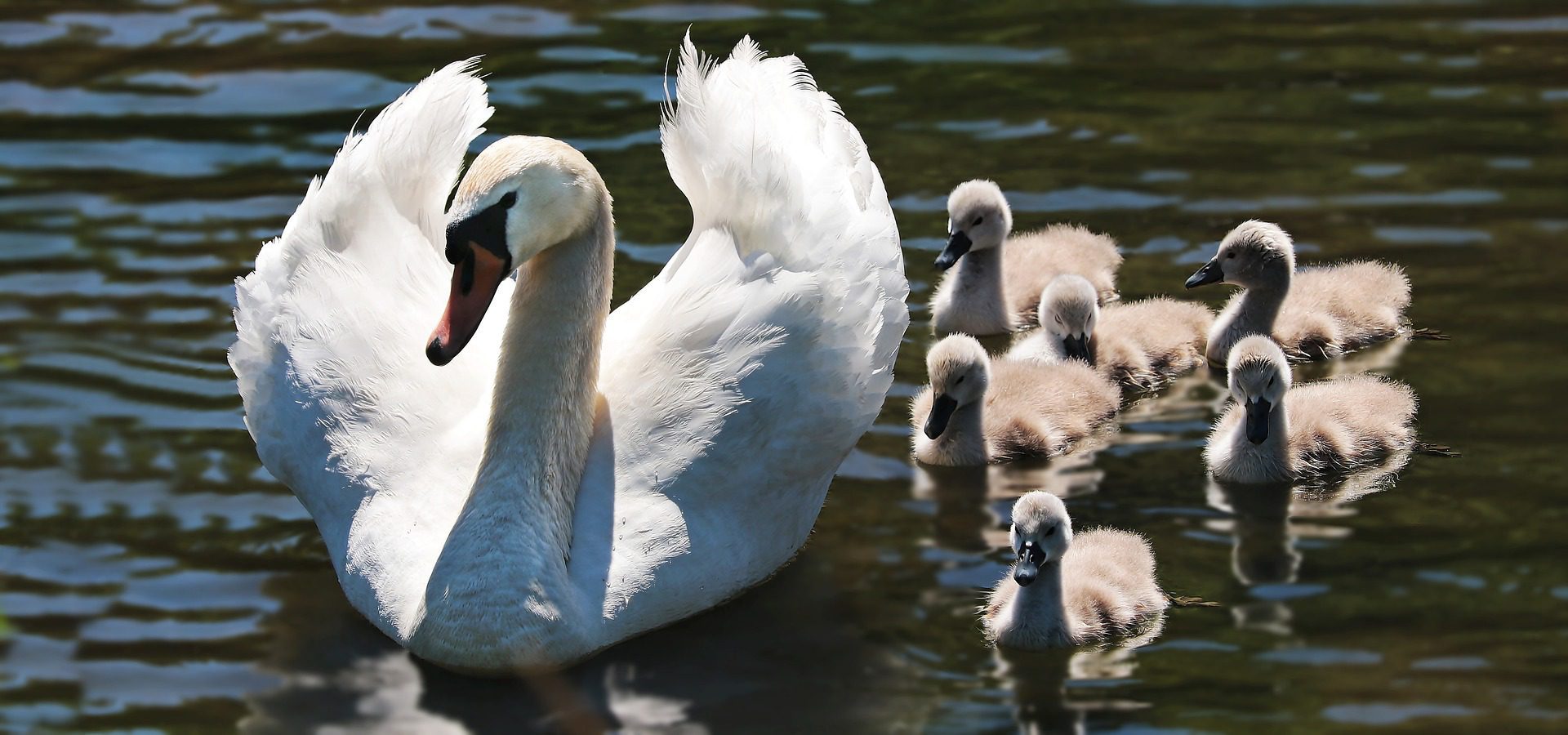

Some years ago, a clip of a mother orangutan trying to coral her unruly toddler was making the rounds. I couldn’t stop watching it. The beleaguered mother had to chase her child repeatedly before she finally managed to drag him after her by his foot. Part of the appeal was undoubtedly the hilarity of it, but the video also captivated me because, well, I could relate. My son had been just like that baby orangutan, frequently escaping from me in public places so that I had to race after him. There are many things about being a mother to a hominid, it seems, that are universal.
The Swiss psychologist Carl Jung coined the term “archetype” to refer to innate patterns of human experience. Images of such patterns can be found in myths, fairy tales, and other ancient stories. When we have children, we find ourselves living out one of the great archetypes – that of The Mother. Mothering is an enormously complex psychological experience. It confronts us with a range of emotions that we might not encounter elsewhere in our lives. Some days, we find ourselves suffused with the energy of the Good Mother, gazing beatifically at our sleeping infant much like those renaissance paintings of Madonna and child. Other days when we’ve just lost it on our squabbling kids, we might feel like we’ve tapped into the energy of the Terrible Mother – personified by the Indian goddess Kali, who wears a necklace of human skulls and feeds voraciously on the entrails of her victims. Hopefully we don’t take things quite that far.
Between those two poles, however, are any number of other archetypal patterns we might find ourselves living out. Here are just a few.
The Controlling Queen
When an evil fairy puts a curse on her daughter at the baby’s christening, Sleeping Beauty’s mother was understandably upset. Hearing that their child would prick her finger on a spindle when she turned 15 and fall asleep for 100 years, the parents decided to ban spindles from the kingdom. This undoubtedly caused the price of clothing to sky rocket and probably resulted in a lively spindle trade on the black market. It also kept Beauty safe.
Somehow, however, on Beauty’s 15th birthday, the king and queen were out for the day, leaving their daughter alone in the castle. Finally away from her mother’s protective, watchful eye, Beauty was thrilled to be able to explore the castle on her own. At last, an adventure! She climbed to the top of an old abandoned tower. There, she met a curious old woman who sat at a spinning wheel. Beauty is entranced. She had never seen such a thing before! She asked the old woman whether she might try – and we all know what happened next.
It’s normal to want to protect our children from pain and struggle. A mother’s protective impulses are, of course, necessary to ensure a child’s survival. But when we take things too far – when we become snow plow parents removing any spindle from our child’s path – we risk stagnating their growth as well as our own. It’s not just Beauty who falls asleep, but the entire castle. Her mother’s psychological growth also comes to a standstill.
The Selkie Bride
A selkie is a seal who can change herself at will into a beautiful woman. One night, a farmer was walking along seashore when he saw three beautiful naked women singing. They didn’t see him, and he was able to creep up and snatch one of the gray seal skins they have left beside them on the rocks. Two of the selkies quickly donned their fur suits and dived back into the ocean, but the third stood shivering and scared. The farmer gently covered her with his coat and led her home to his little farm where she became his wife. They two had many fine children, and she loved them very much, but whenever she gazed out to sea, she became sad. One day, her youngest child asked her why his father kept an old skin hidden behind a brick. The mother asked him to show her, and once she had her skin in her hands once again, she knelt to kiss her son before running down to the water’s edge. Her family never saw her again.
Though most moms would never want to leave their children forever, they can relate to the desire to escape – even briefly – from the demands of always attending to someone else’s needs. We might miss our carefree life before children when we were able to focus on ourselves. Like the selkie, we might feel wistful about a time before all of the responsibilities of parenthood. If so, we might discover that we have a tendency to slip away at times, possibly even looking for opportunities to avoid our kids. If this is the case, you might need to make room to mourn those parts of your life that you left behind when you became a mom.
The Resourceful Mother
In the Scottish folktale “The Stolen Baby and the Fairies,” a young mother is distraught when she learns that the fairies have taken her child. Even though she is told that it will be impossible to get him back, she doesn’t give up. She learns that she can trade something rich and rare for her son, but she is poor and has few resources. Nevertheless, she finds that she is able to make beautiful items, including an ivory white harp made from animal bone and strung with strands of her own golden hair. The fairies are so enchanted by the harp and its beautiful music that they agree to trade her son for it.
When my kids were little, I knew mothers whose houses were tidy and who always seemed calm and put together. I couldn’t offer my little ones that sense or orderliness. My house was a mess and so was I a lot of the time. Like the mom in the fairy tale, I worried that I wasn’t good enough. Eventually, I learned to trust that what my kids really needed was me- even with all of my faults. I learned to appreciate my unique strengths and to see how valuable I was to my kids just because I was their mom.
Motherhood will take us places we’ve never been and introduce us to aspects of ourselves we might never have otherwise met. Some of these experiences might be sobering, humbling – or downright unpleasant, but they will nevertheless be priceless opportunities to know ourselves better. Having and raising children is probably also the single best way to learn about yourself.
The course Psychology of Love taught by Jungian analyst Pittman McGehee explores how the mother and father archetype influence our individuation process. McGehee takes us on a tour through the archetypal world and weaves it masterfully together with our life experiences in this practice-oriented course.The soul-oriented perspective he offers is an opportunity to learn more about yourself, others, and the divine, and to deepen your intimate relationships.

Lisa Marchiano
Lisa Marchiano is a writer, Licensed Clinical Social Worker, and certified Jungian analyst in private practice in Philadelphia, Pennsylvania. She received her MSW from New York University and completed analytic training at the Inter-Regional Society of Jungian Analysts. Lisa is on the faculty of the Philadelphia Jung Institute.
More Posts by Lisa Marchiano16 Comments
Join the discussion and tell us your opinion.
Comments are closed.
What a great and quick read. I am wanting to share this post or somehow offer it as a Mother’s Day Gift on my personal FB page (without of course infringing on any copyright no nos!)
So my youngest daughter us pregnant with her first child, I am sharing this with her. This was a great read and it resonates so completely. I know I can’t push but I just can only wish enlightenment would come so much sooner for my children as it did me. Life is so much more understandable when you look at it with an open mind, heart, & eyes lol.